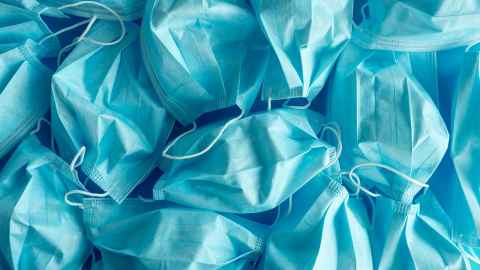Researchers develop way to disinfect PPE for potential reuse
26 June 2020
Researchers have received funding of $1.3m to put in place a mobile solution to disinfect and potentially reuse personal protective equipment (PPE).

Researchers from the University of Auckland and the University of Otago have received funding of $1.3m to put in place a mobile solution to disinfect and potentially reuse personal protective equipment (PPE).
Lead researcher Dr Yvonne Anderson of the University of Auckland’s Medical School says the project has the potential to protect frontline workers against virus transmission in hospitals and the wider community. It may also address what continues to be a ‘river’ of PPE going to disposal.
“Being a front-line worker, I know how important it is that the voices of healthcare workers are heard in this area to ensure an acceptable end-product. By conserving PPE and creating safe disinfection solutions, we create an insurance policy against running short of this essential equipment in the future, and may also stem what is proving to be a major problem for the environment,” she said.
While New Zealand has avoided major strain on its health system to date, internationally the pandemic continues to affect millions of people, placing serious pressure on many health systems who continue to require large volumes of PPE to keep health staff protected.
Dr Anderson and Dr José Derraik of the Faculty of Medical and Health Sciences and the Liggins Institute reviewed research on how best to disinfect PPE, and have worked with collaborators in New Zealand the University of Waterloo, the Taranaki DHB and a business to create and trial a process that enables PPE to be safely disinfected for potential reuse. The proposed protocol uses a combination of storage, heat and ultraviolet (UVC) light.
The team are trialling the process on gowns, surgical masks, N95 masks, face shields and eye wear to demonstrate that the treatment means used PPE can safely be disinfected for potential reuse.
Initial estimates are that the disinfection protocol would increase the available supply of N95 face masks alone by 400 per cent, with the designed system irradiating 300 masks per hour.
The next step is for the team to test and refine their protocol with Professor Miguel Quiñones-Mateu and his team on actual Covid-19 (SARS-CoV-2) virus kept safe in a highly contained laboratory at the University of Otago, Dunedin, and a secure facility also looking at potential vaccines.
Dr Anderson says, “We are working closely with the University teams on how to do this safely, and thanks to the expertise of UV Solutionz, a New Zealand firm that specialises in UV disinfection, we are in a position to create a whole-of-PPE disinfection solution. We wanted to keep the process simple, rapidly implementable, mobile and easy to roll out across the country and further afield as necessary.”
The project has been supported by $1.3m from MBIE’s Covid-19 Innovation Acceleration Fund and $46k from the MAS Foundation, the philanthropic arm of the organisation providing insurance and financial services to health professionals.
Media contact
Gilbert Wong, gilbert.wong@auckland.ac.nz, 021 917942